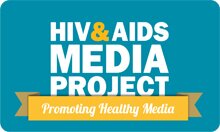2001: Mbeki and AIDS Mortality
In an interview with Tim Sebastian on BBC World's Hard Talk (6 Aug 2001), Mbeki defended his stance that AIDS was caused by multiple factors. When asked whether he accepted that his position had "actually damaged the fight against AIDS in this country", Mbeki said he didn't. He said that the "largest single cause of death as we sit here is what in the medical statistics is called external causes and that is violence in the society".
His position was refuted in the media. In September 2001, a letter addressed to Health Minister Manto Tshabalala-Msimang from Mbeki was leaked to the Business Day, a national South African daily. The letter instructed Tshabalala-Msimang to examine 1995 WHO data that showed AIDS to be the cause of just 2.2% deaths in South Africa. Mbeki referred to the WHO website as a source for the material. The fact that he was using old data caused a furore in the media. The low statistics were quickly discredited by a Medical Research Council (MRC) report released in the same month, which estimated approximately 40% of deaths of working age adults were due to AIDS (see more about this below).
Mbeki wrote in his letter:"I believe that these [1995 WHO] figures present us with the challenge to answer a number of social and medical questions … Of course, I assume that they represent a more or less accurate picture of the causes of death in our country. If this is the case, some of the questions we have to answer are:
* What social policies have we put in place to reduce the incidence of death, bearing in mind the importance of the causes of death by rank?
* Do our health policies and therefore the allocation of resources reflect the incidence of death as reflected by these figures? and,
* Are the programs of the state medical research institutes geared to respond to the profile of the incidence of death as reflected by these statistics?
… Needless to say, these figures will provoke a howl of displeasure and a concerted propaganda campaign among those who have convinced themselves that HIV/AIDS is the single biggest cause of death in our country
Nevertheless, whatever the intensity of the hostile propaganda that might be provoked by the WHO statistics, we cannot allow that government policy and programs should be informed by misperceptions, however widespread and well established they may seem to be …"
The MRC's report on the AIDS impact on mortality statistics released the same month, September 2001, stated that AIDS was the leading cause of death and was responsible for nearly half the deaths (40%) of working-age adults. The report predicted that HIV and AIDS would account for 66 percent of all deaths by 2010 and that the death-toll from the disease would have risen to between five and seven million by that time. (See Statistics Factsheet for the most up-to-date HIV/AIDS statistics.
Mbeki's Cabinet initially tried to block the report, but the Sunday Times obtained a leaked version and published portions of it. The MRC's president, Malegapuru Makgoba, was hopeful at the time that the report would lift the country out of its "complete denial" (source). Instead, the ANC asked for more credible statistics. In a report in The Star newspaper, Smuts Ngonyama said the exclusion of "other stakeholders" from the MRC report was causing "problems" for the ANC. "All we need is credible statistics agreed to by all stakeholders," said Ngonyama. Tshabalala-Msimang meanwhile castigated the MRC for its "regrettable actions".
"It is highly regrettable that employees of the MRC, who themselves are government employees, should have chosen to act in ways which place themselves in a hostile position vis-a-vis the government, and it will be necessary for this serious situation to be attended to," she said in a statement issued by the Government Communication and Information System. Later, Tshabalala-Msimang wrote to the board of the MRC, asking for a forensic audit to be undertaken in order to establish who had leaked the report to the media.






